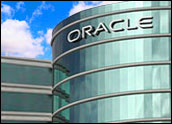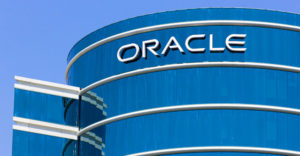
Oracle has acquired Relsys, a small private company that makes drug safety analytics software for the pharmaceutical and biotech industries. The terms of the deal were not revealed.
Relsys will continue to operate independently until the deal closes, which is expected to take place by this summer.
Oracle’s Approach to Acquisitions
Oracle’s days of digesting huge multibillion-dollar acquisitions of suiteapplication providers — Siebel, PeopleSoft, JD Edwards and BEA — appear to be over for a while. Instead, the company is focusing on smaller, one-off plays to build up its toolset in particular functional areas — such as business intelligence in the case of the Hyperion acquisition.
Sector specialization has been another goal of Oracle’s acquisition strategy, said Rebecca Wettemann, VP of research at Nucleus Research.
“Oracle has looked at a lot of different ways to make deployments lessexpensive and less risky to the investor,” she told CRM Buyer. “Leveragingvertical expertise is one way to do that. It is not surprising forOracle to have picked healthcare for an acquisition target, she added.
A Sector Play
Oracle already has a strong presence in the healthcare space — the acquisition of Relsys only deepens the bench. Last year, the company formed a new global business unit for the health sciences industry, combining Oracle Clinical, Oracle Remote Data Capture, Oracle Thesaurus Management System, Oracle Adverse Event ReportingSystem, Oracle Life Sciences Data Hub and Oracle’s Siebel Clinical Trial Management System.
The addition of Relsys’ portfolio — which includes compliance monitoring, product lifecycle development and risk management — is expected to shore up Oracle’s drug safety processes across clinical development, post-market surveillance and patient care. It also should help position Oracle for the influx of spending in healthcare IT expected under the Obama Administration’s budget and stimulus plan.
Focus on Health
Indeed, the health sciences space is going to be a major focus of investment for software vendors, if it isn’t already, Paul Greenberg, author of CRM at the Speed of Light, told CRM Buyer.
“Healthcare is going to be one of the biggest national issues for at least the next four years,” he remarked.
It is an emotional trigger for most every consumer; the fact that it has become clear the current health insurance system is not sustainable only exacerbates the industry tension.
Thus far, most of the investment in this space has focused on electronic or personal medical records. Last year, for instance, the Cleveland Clinic and Google formed a joint venture to develop a PHR (personal health record) pilot program for use by a group of Cleveland Clinic patients using the clinic’s in-house system. In 2007, Microsoftintroduced HealthVault, a portal that lets consumers store their health data — either manually or by uploading data from a medical device — as well as search for related healthcare information.
The missing piece has been the patient’s participation. Indeed, user adoption is viewed by some skeptics as a wild card that could delay many of the wider initiatives.
Relsys represents the slice of the industry that has never had problems with adoption. Physicians, research entities and pharmacies have all rushed to adopt the industry-specific CRM and other related applications as fast as the vendor community could produce them.






















































